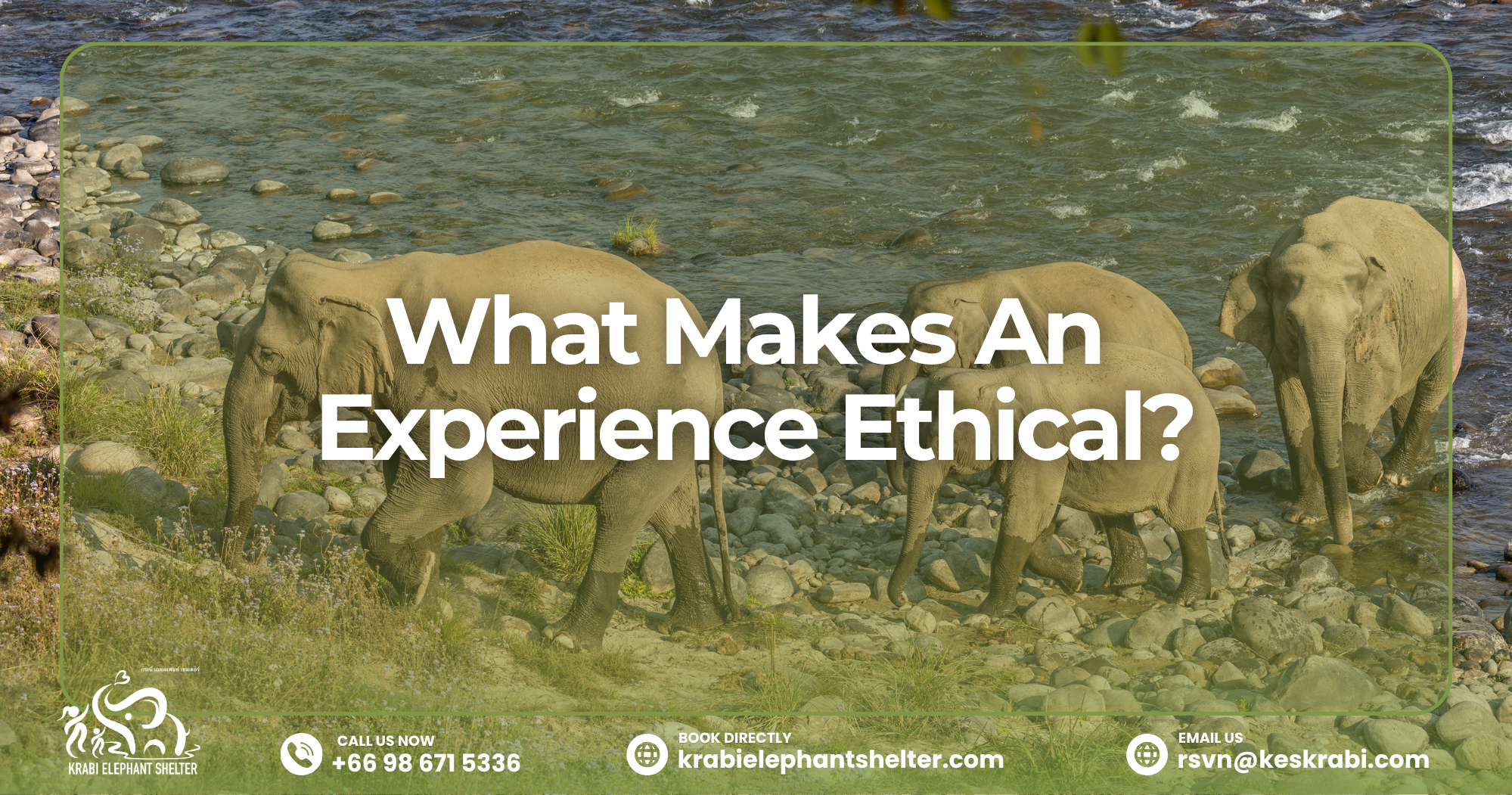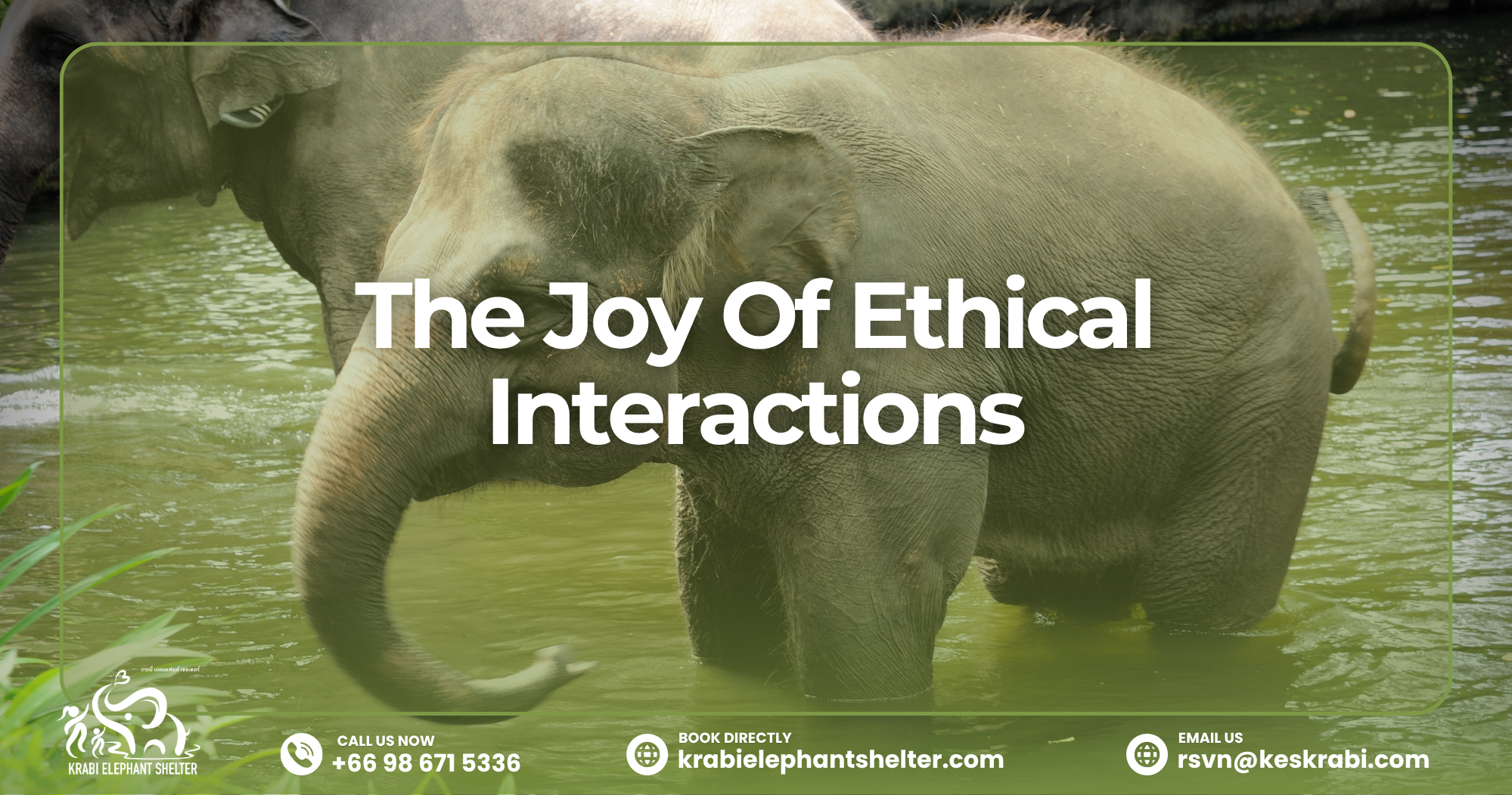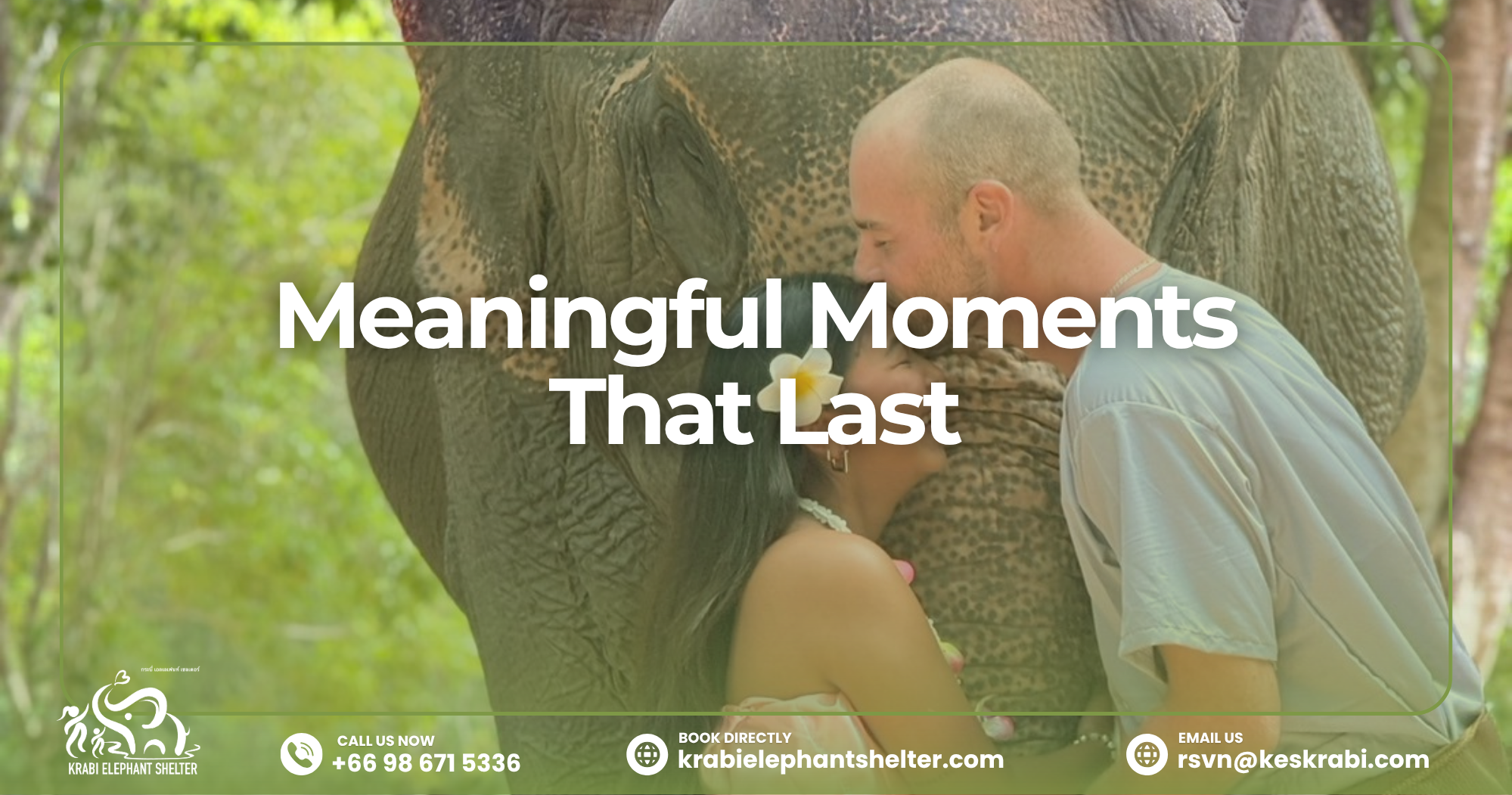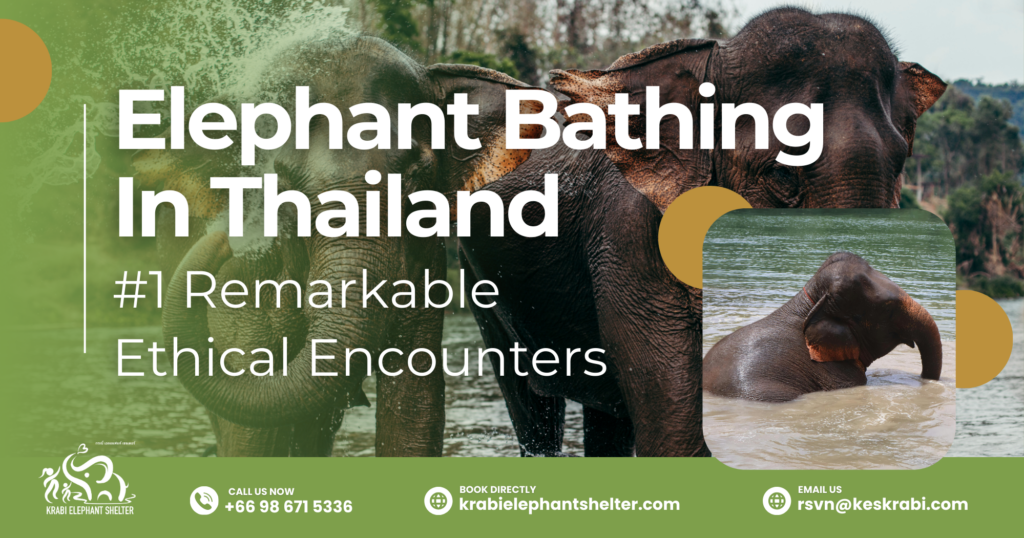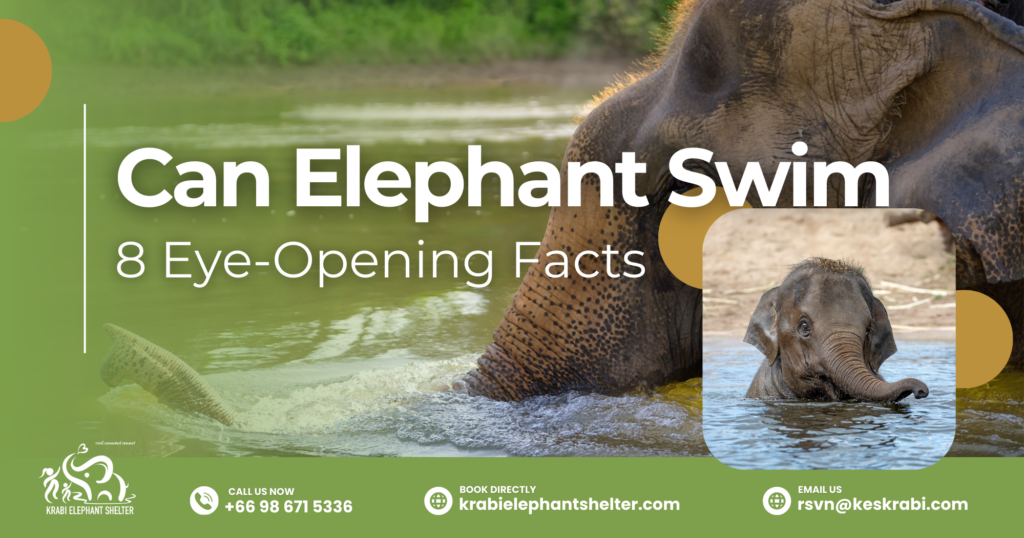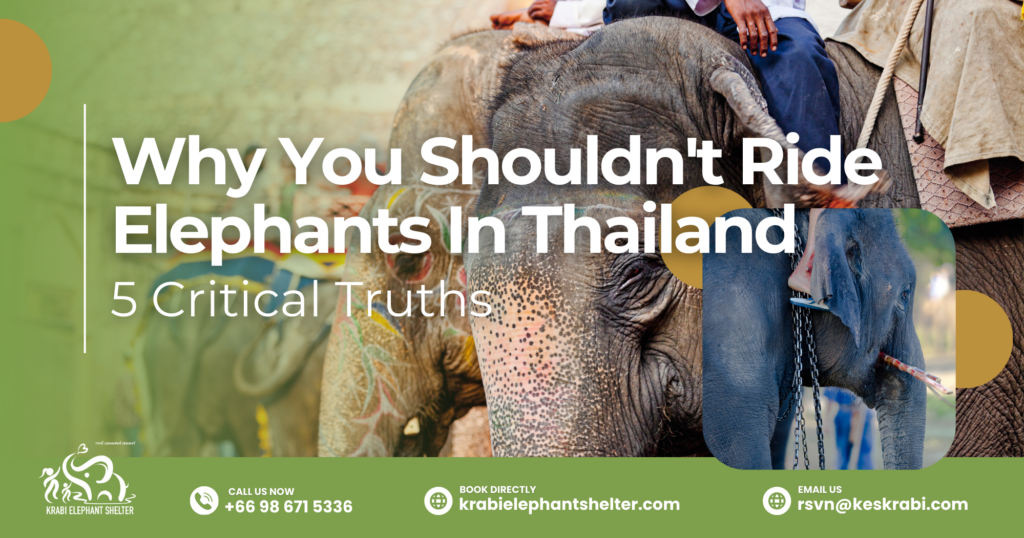Approaching elephants is a dream of lots of tourists. These docile giant creatures win hearts through its outward reserve and boundless curiosity. But not all elephant experience is created equal.
Some picture-perfect situations may have as their background stories of pain, stress, and mistreatment. The good news is that with just a little know-how, you can choose an ethical elephant experience that supports the well-being of these incredible animals.
Why It Matters
Elephants are social, emotional, and intelligent animals. They create great attachment to the families, nod when grieving their dead, and they even recognize themselves in the mirrors. Due to these characteristics, they are also greatly hurt when removed from the wild, when they are torn out of their families, or when they have to entertain tourists.
Unfortunately, even several tourist attractions continue to be based on primitive and inhumane traditions. Elephant rides, tricks, and other performances may also mean that the elephant is badly trained, breaking the spirit. Choosing the right kind of elephant experience helps protect these animals and ensures your visit supports their care and happiness.
What Makes An Experience Ethical?
An ethical elephant experience puts the elephants’ needs first. That means providing them with space, freedom, and choice. It’s about observing, learning, and interacting gently in such a way that respects their natural behaviour.
Communications Must Go Elephant-to-elephant
In ethical sanctuaries, the elephants are given a choice whether to communicate or not. An excellent idea to build a bond is to feed an elephant with accepted food: it does not add to the levels of stress. Walking beside them, not on them, can also be part of a positive elephant experience, especially when the elephant is free to roam, stop, and snack along the way.
No Rides And Chains
The red flag is a huge facility that offers rides on elephants or that chains the elephants in the absence of tourists. The elephants chosen to be ridden usually undergo a horrible training procedure called the crush, where they are based on fear and solitude. By avoiding such places, one will prevent the demand that will keep them operational.
How To Spot A Responsible Sanctuary
Choosing a responsible elephant experience starts with a little research. These are some of the signs helpful to you:
Transparency Matters
Good sanctuaries give information on their elephants’ origin and welfare. They will share their policies, the way they train (in case they do), and a day with the elephants and their daily routine. When something is evasive and ambiguous, this is normally a red flag.
The Size Of The Groups Is Small
Elephants may be stressed when exposed to crowds. With small tour groups, calmness prevails, and a more personal interaction is enjoyed. It is also an indication that the facility puts quality rather than quantity.
Elephants Are Not Forced To Work
If the elephants are painting, dancing, or performing tricks, it’s not an ethical elephant experience. These actions are not innate, but usually, they are the product of crude conditioning. On the contrary, a sanctuary will allow you to experience the elephants in their real habitat, either by splashing mud on them or going to sleep in a new shade.
The Joy Of Ethical Interactions
It is simply magic to offer an elephant a basket of fresh fruits or to walk alongside it as it makes a walk in the forest. These scenes can be silent, but strong.
Feeding: A Point Of Contact
One of the best interaction methods with Elephants is through Elephant Feeding. When properly implemented, it is safe, fun, and rewarding to you and the elephant. You see their personalities come out tender and placid, and others are eager and exuberant. All you have to do is make sure the food is approved by the sanctuary staff and do not feed an elephant without any supervision.
Not Walking On, But Together With
The experience of walking with an elephant is one that enables the person to view the world through the eyes of the elephant. You may observe them checking to scratch against a tree or grab a wad of leaves, or flap their ears in satisfaction. This has nothing to do with control; this is companionship. That’s the heart of a good elephant experience.
What To Avoid
It is quite significant to comprehend the actions that should not be supported. The following are some of the definite indicators of bad experiences in unethical experiences:
- Riding: It is never okay to use elephants for fun and pleasure, even if the seat looks like it has padding or the ride is short.
- Performances: Dancing, painting, or playing games isn’t natural behavior.
- Forced Bathing: Bathing with elephants can seem fun, but if they’re pulled into the water or surrounded by way too many tourists, it can be stressful for them.
- Lack of Free Movement: If elephants are on short chains or confined when not with visitors, that’s a problem.
Making The Right Choice
Choosing the right elephant experience isn’t just about being a good tourist. It has something to do with making a compassionate choice that indicates your values. Your visit will aid the ethical sanctuaries to carry on their activities, as they require a financial background to support the food and medications, as well as the maintenance of viable habitats.
All respectful, kind encounters have a larger tale, one in which elephants are campaigners, not selfie backgrounds or platforms. The change is occurring as more individuals are becoming conscious and preferring to experience more.
Meaningful Moments That Last
Our favorite moments of any travel are those that we remember because they were not overdone or spectacular, but they were real. An ethical elephant experience gives you exactly that: a chance to slow down, connect, and witness the quiet beauty of one of Earth’s most awe-inspiring creatures.
It does not require being an expert or an activist to make a difference. It may be more than enough just to measure up by asking the right questions by supporting responsible sanctuaries, and choosing kindness.
So the next time you’re dreaming of an elephant experience, remember that what feels good for the animal matters just as much as what feels good for you. And when the two things are in line, that is where the magic is performed.
Whether you’re feeding, walking, or simply observing, a thoughtful elephant experience is one you’ll never forget. Make good decisions, go well, and have a good trip.
Book your trip to Krabi Elephant Shelter now!
By visiting Krabi Elephant Shelter, your entrance fee directly supports the elephants’ care, including their food, medical treatment, and habitat upkeep. It’s a meaningful way to make your trip count—contributing to long-term animal protection efforts while enjoying a once-in-a-lifetime encounter with Thailand’s most beloved giants.
Phone: (+66) 98 671 5336
Email: [email protected]
Book directly at krabielephantshelter.com

